I am a data researcher at Data School and PhD candidate in the Media and Culture Studies department at Utrecht University. My research focuses on the application of AI in investigative journalism.As part of my PhD, I contribute to data journalism projects for the Dutch weekly De Groene Amsterdammer. I build datasets and develop techniques to study public debates and the impact of technology on society.Below is a selection of projects I have worked on. Questions, ideas, or collaborations? You can reach me at: [email protected]
Projects
2025

Dutch Government Significantly Less Productive Than Previous Cabinets
How productive is the current Dutch government? To find out, we analyzed decision lists from the weekly Council of Ministers, reviewed the Senate agenda, and counted the number of independently proposed laws currently in preparation. The data shows that this cabinet is producing significantly less than its predecessors. If we use the Senate as a benchmark, no government this century has passed fewer laws.
2024

Radical right groups flood Facebook with AI-generated images during Dutch elections
Far-right Facebook pages have been spreading fake images of asylum seekers and migrants alongside promotional slogans for the Dutch far-right party, the PVV (Party for Freedom), led by Geert Wilders. Our investigation identified 672 political posts on these pages that were created using artificial intelligence. Further research revealed that these pages are directly linked to Wilders’ political faction.
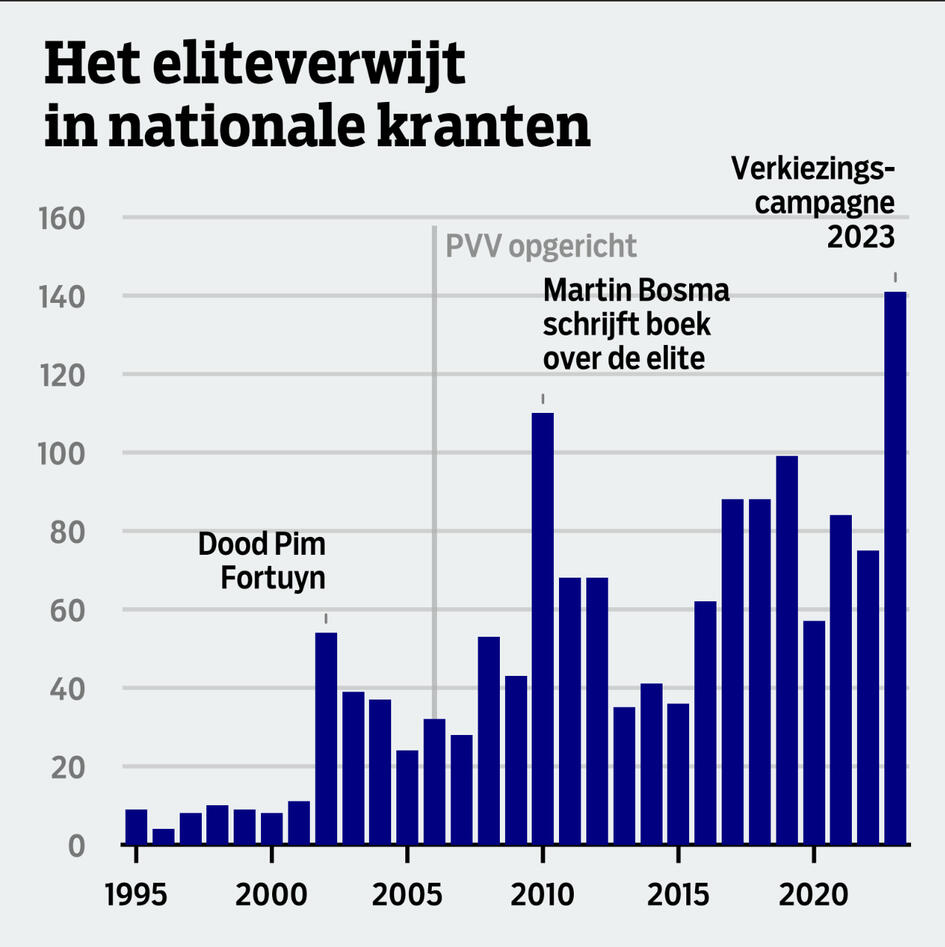
How "leftist" became a slur
How was "leftist" described in Parliament (Tweede Kamer, the Dutch House of Representatives) and in newspaper articles, and how did that change over time? And how exactly did the accusation of elitism emerge? To uncover this, we analyzed three decades of parliamentary proceedings and 32,464 journalistic stories. The results show that the meaning of "leftist" has changed dramatically over the past thirty years.
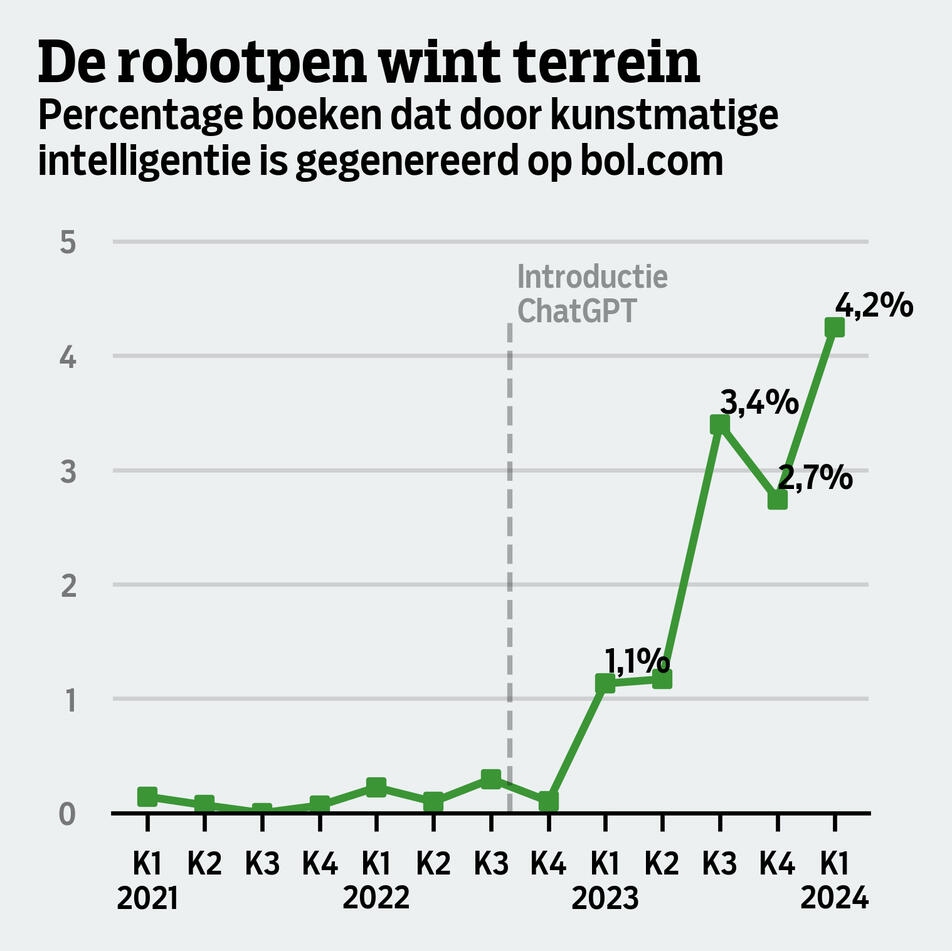
Thousands of AI-generated books on the Netherlands' largest online retail platform
With custom-built software, we analyzed new titles spanning over eighty genres available on the Netherlands' most popular online bookstore. We uncovered more than 6,500 titles predominantly or entirely authored by artificial intelligence. These books are much cheaper, cater to highly specific niches, and frequently appear at the top of search results.
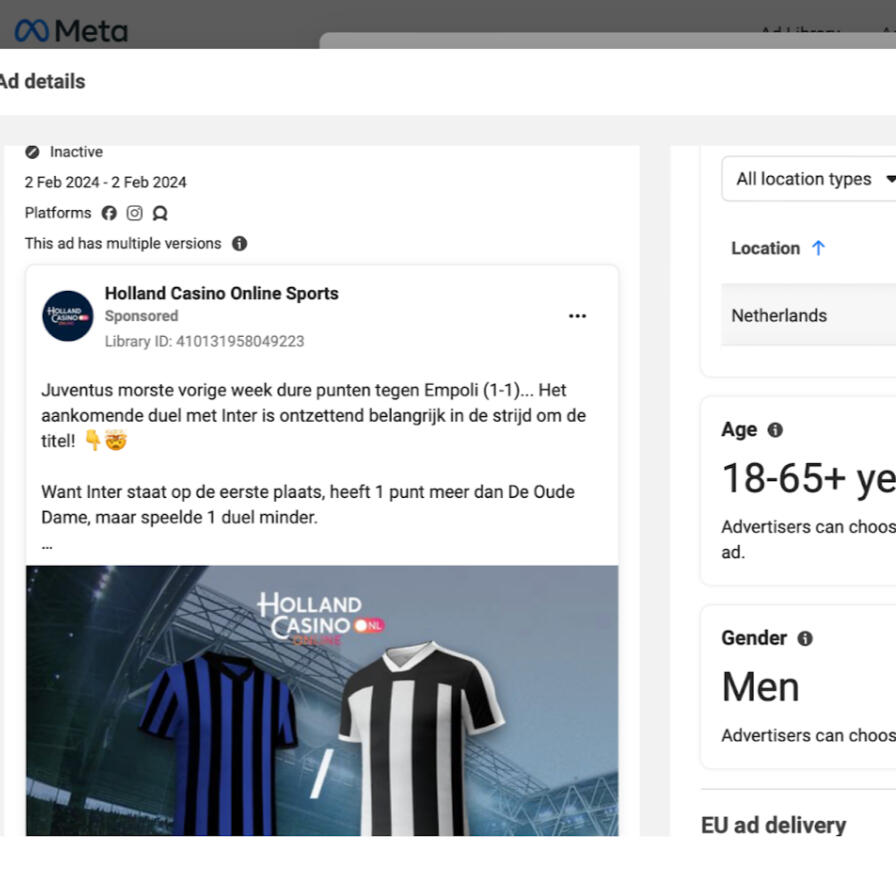
Gambling companies illegally target their advertising at young people
Gambling ads disappeared from streets and television in the Netherlands last summer, but they remain permitted online. Here, gambling companies are illegally targeting vulnerable young people with their advertisements. We uncovered hundreds of online ads explicitly aimed at young audiences. In total, five out of nineteen gambling companies investigated were found to be violating these rules.
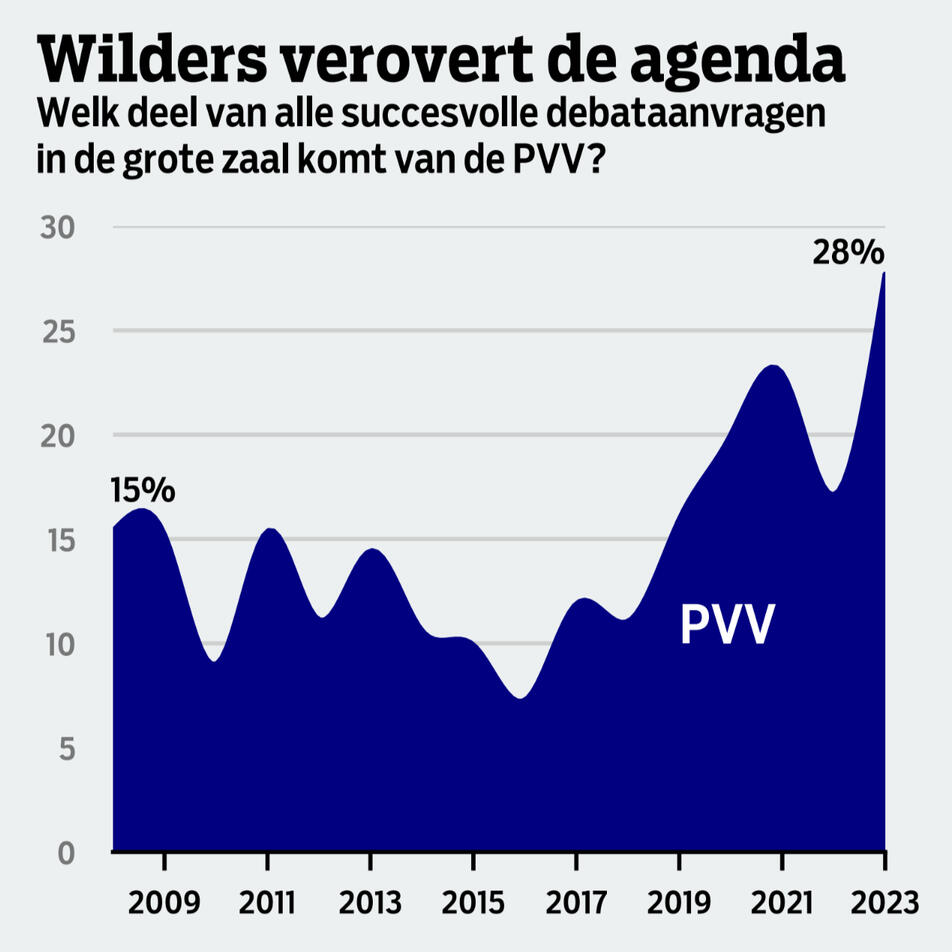
For years, Geert Wilders and the radical right have set the agenda in Dutch parlement
Whoever sets the agenda in Dutch parliament controls the political debate. To understand who holds this power, we used generative AI to transform parliamentary transcripts into a structured dataset of agenda topics and priorities. For the past five years—long before their recent election win—Geert Wilders’ PVV (Party for Freedom) has consistently dominated the schedule.
2023
.
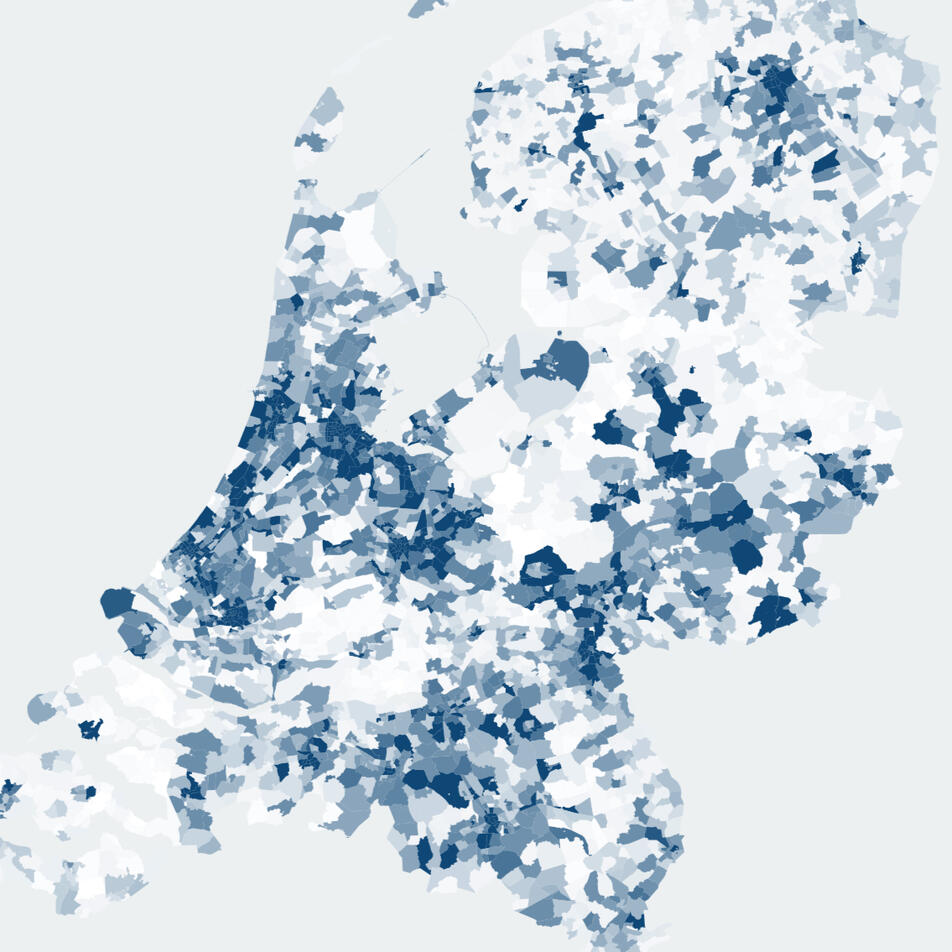
In the Netherlands, neighborhoods overlooked by political campaigns turned to the far-right
Campaign teams ignored voters in areas that often supported the far-right. Since October, Dutch political parties have spent €2,436,329 on 7,840 advertisements. To track this, we set up an election campaign monitor early in the campaign period to map the distribution of these ads.
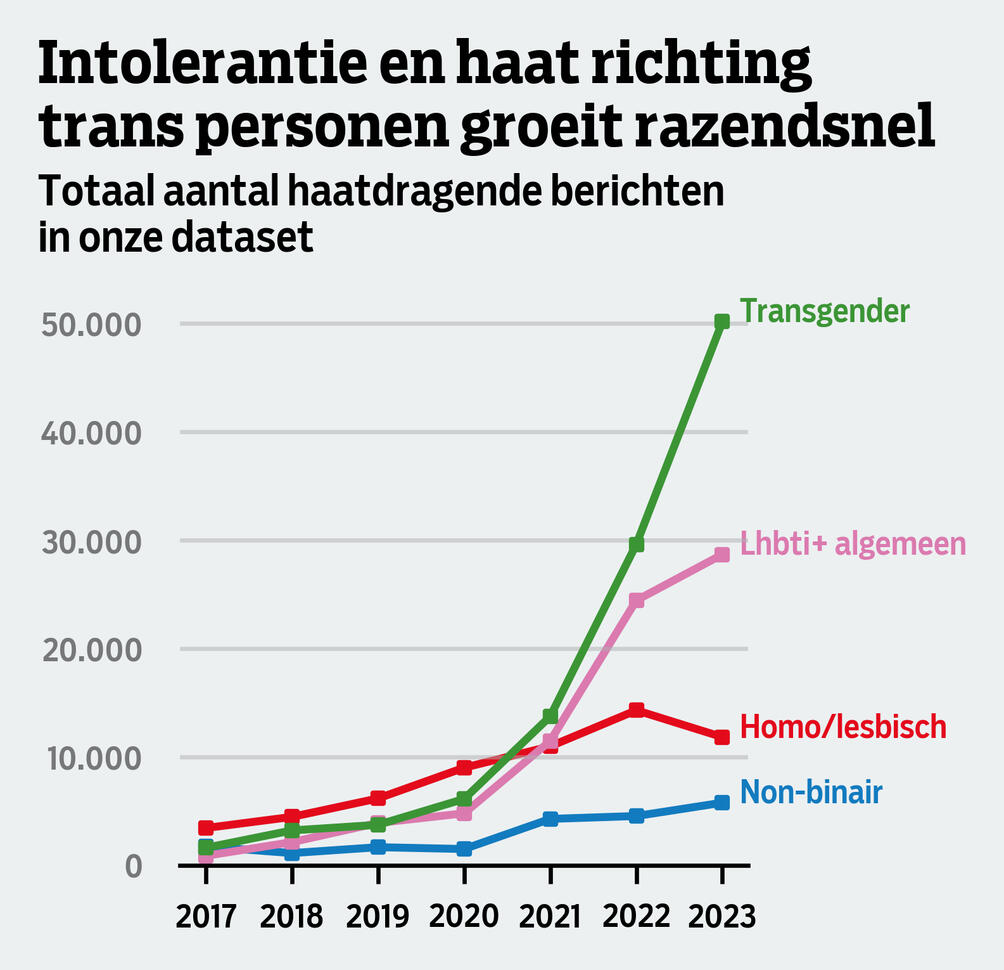
Anti-LGBTQ sentiment is rising rapidly
We trained a model to identify anti-LGBTQ hate speech. In total, we analyzed over ten million messages posted online in the past decade. From Telegram to Instagram, Twitter to YouTube: hostility toward LGBTQ groups is rapidly increasing across all platforms.
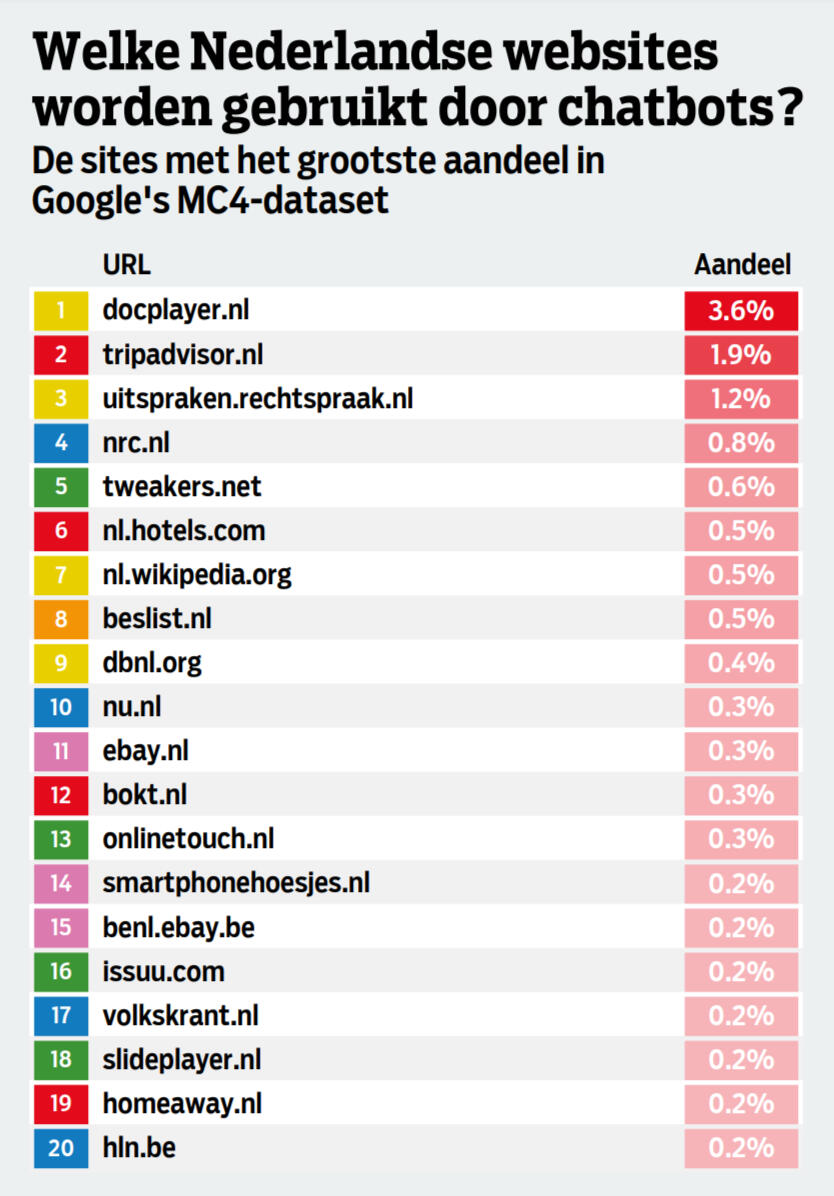
Dutch chatbot training data filled with copyright violations, private information, and fake news
We investigated the largest publicly available Dutch-language dataset used for training language models: mC4. It turns out to be filled with copyright violations, private information, and fake news. Among the two hundred most-cited websites, we found nearly every major Dutch newspaper, but also the neo-Nazi conspiracy site Stormfront.
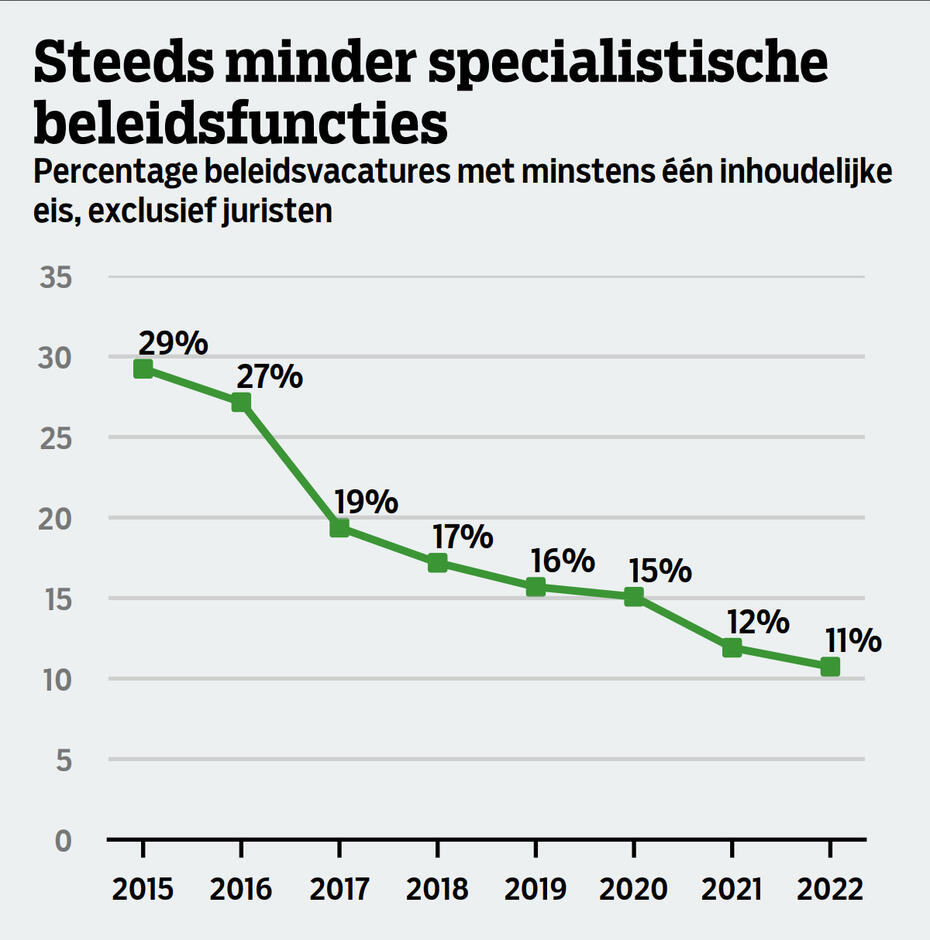
Fewer and fewer civil servants with specialized expertise
The type of civil servant being recruited is increasingly less specialized. Only eleven percent of last year's policy job postings required substantive knowledge or expertise, according to our data analysis. Meanwhile, demand for civil servants with "political sensitivity" and "political awareness" remained consistently high.
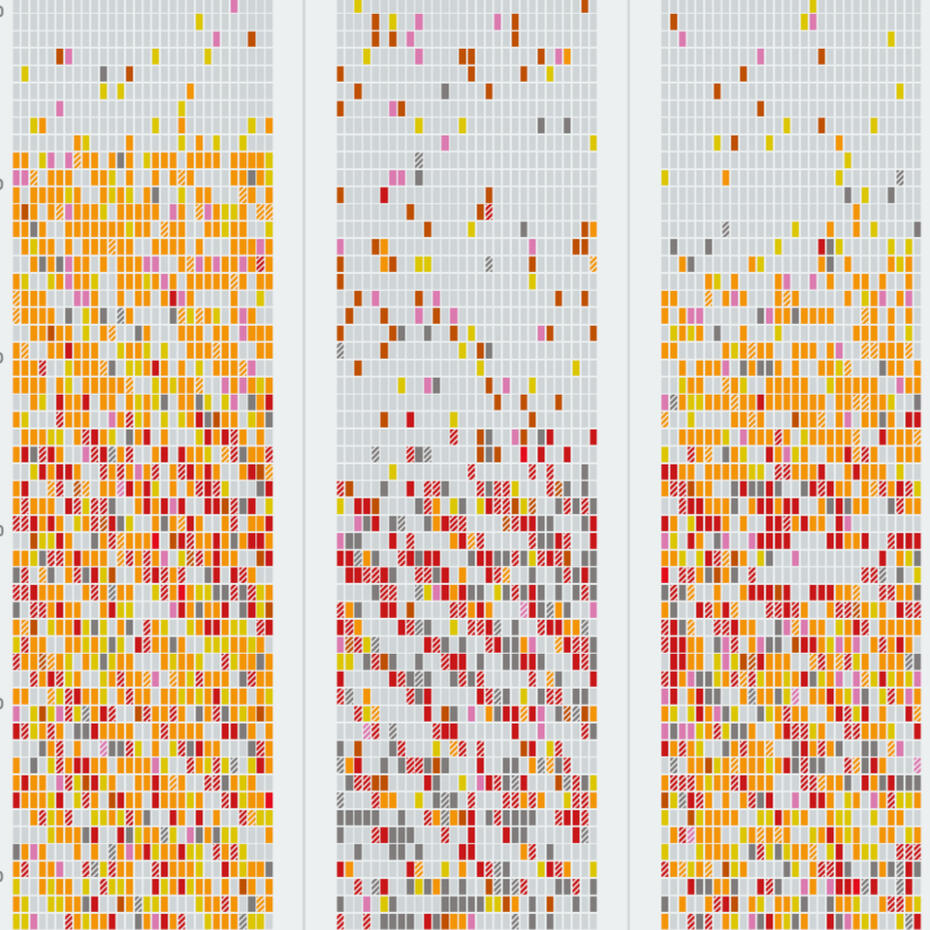
Trapped in an Eating Disorder Bubble Within Thirty Minutes
Users are funneled into eating disorder content within thirty minutes. Those interested in dieting are quickly exposed to extreme videos on eating disorders, crash diets, and images of thin women. To examine how rapidly such extreme content appears, we had twelve automated accounts with varying interests scroll through the app.
2022
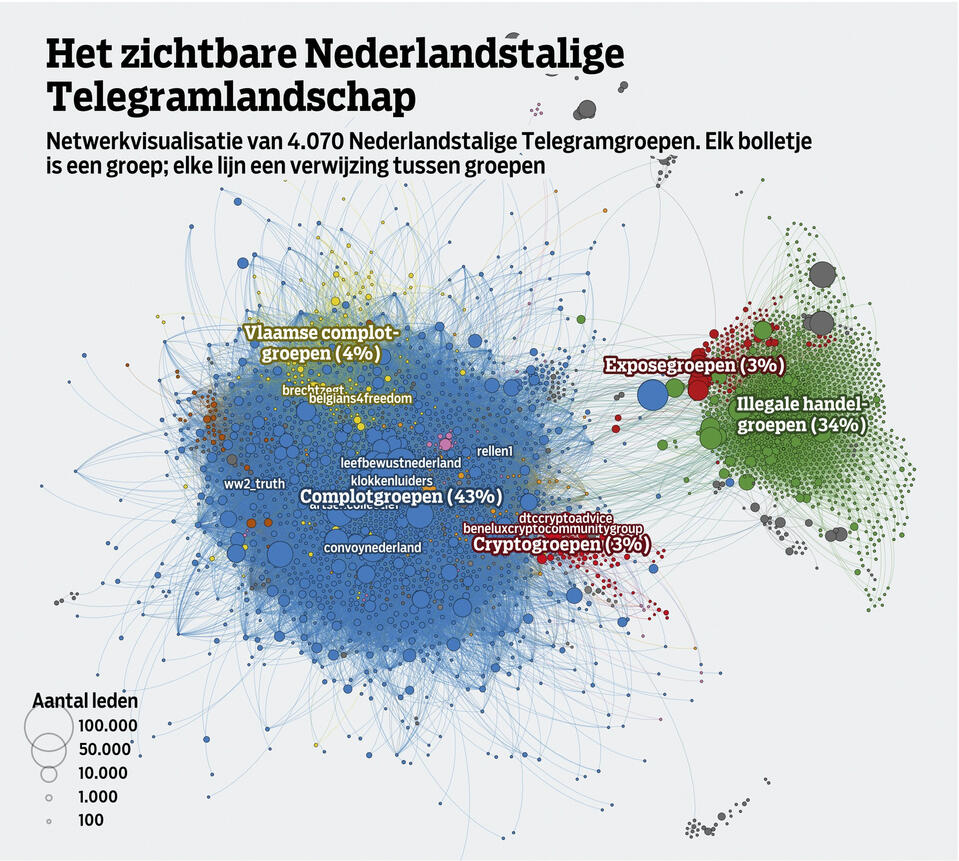
Inside the World of Dutch Telegram Groups
Extremism on Telegram isn’t confined to the fringes of the debate. We mapped the Dutch-language Telegram landscape, following links from one group to another until no new groups emerged. In total, we analyzed 30 million messages across more than 4,000 groups.
2021
.
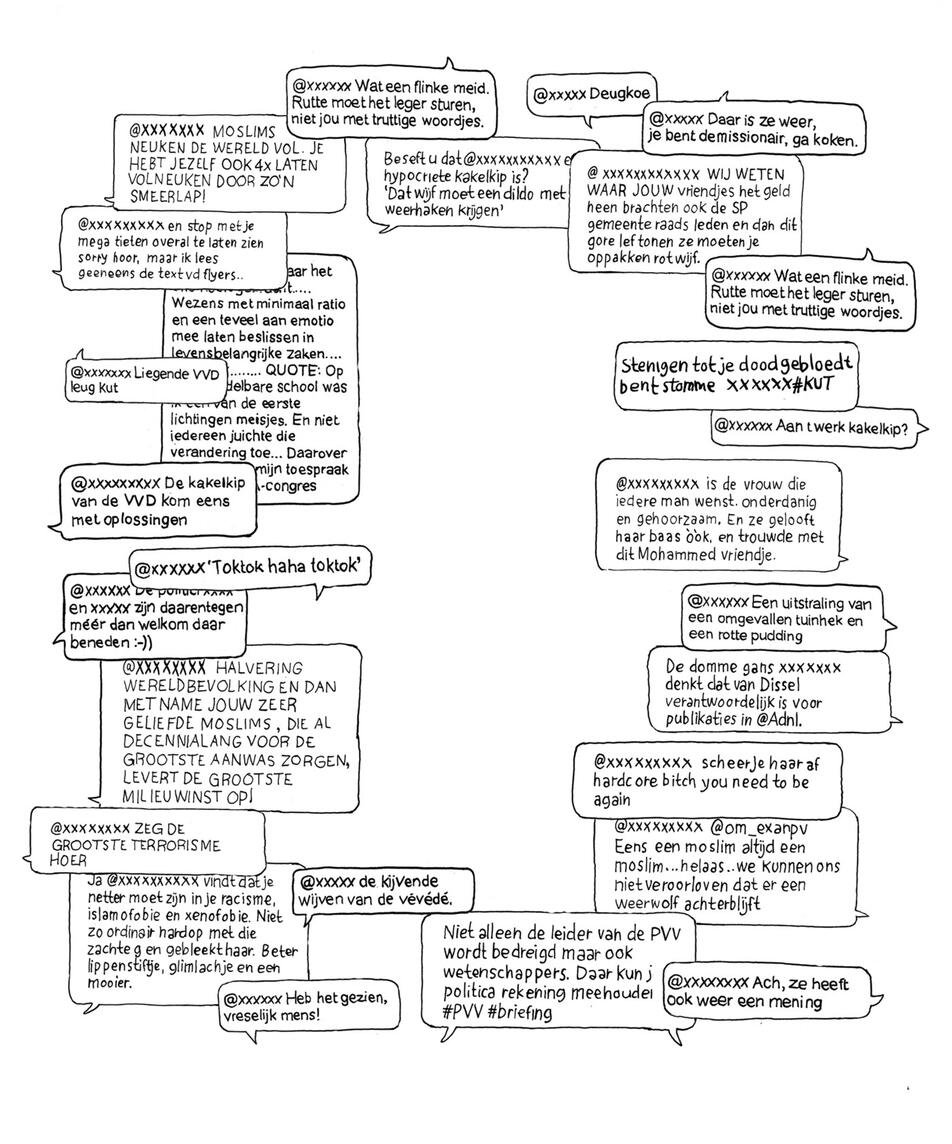
One in Ten Tweets Directed at Female Politicians Contains Hate Speech
We analyzed 339,932 tweets sent between October 1, 2020, and February 26, 2021, to all women on Dutch electoral lists. Ten percent of these tweets contained hate speech or even threats. Most of the abuse was gendered and explicitly sexist. Female politicians who also belong to a minority religion or are people of color faced even more hostility.
Projecten
2024
Scientific publications
Veerbeek, J., & Diakopoulos, N. (2024). Using Generative Agents to Create Tip Sheets for Investigative Data Reporting. Proceedings of the Computation + Journalism Symposium 2024.
Veerbeek, J., van Es, K. F., & Müller, E. (2024). Professional follow-up communication as an indicator of public value: Analyzing Dutch PSM’s Role in Public Debates Through Topic Modelling Newspaper Coverage. Journal of Mass Communication Inquiry, 48(3), 468-489
Other
Veerbeek, J., & Diakopoulos, N. (2024). How Teams of AI Agents Could Provide Valuable Leads For Investigative Data Journalism. Generative AI in the Newsroom.
2023
Scientific publications
Lassche, A., Ros, R., & Veerbeek, J. (2023). (De)constructing binarism in journalism: Automatic antonym detection in Dutch newspaper articles. In Proceedings of the Computational Humanities Research Conference 2023 (Vol. 3558, pp. 63-77).
Pander Maat, H. L. W., de Glopper, C., Raaijmakers, K. M. J., Veerbeek, J., & Vermeulen, D. H. A. (2023). Fleshing out your text: How elaboration and contextualization moves differentially predict writing quality. Journal of Writing Research, 15(2), 363-393.
2022
Scientific publications
Veerbeek, J., van Es, K. F., & Müller, E. (2022). Public Broadcasting and Topic Diversity in The Netherlands: Mentions of Public Broadcasters’ Programming in Newspapers as Indicators of Pluralism. Javnost, 29(4), 420-438
Other
Veerbeek, J. (2022). Literaire kwaliteit voor detectives: Recensie van Het raadsel literatuur. Is literaire kwaliteit meetbaar? Vooys : tijdschrift voor letteren, 40(3), 72-75.
